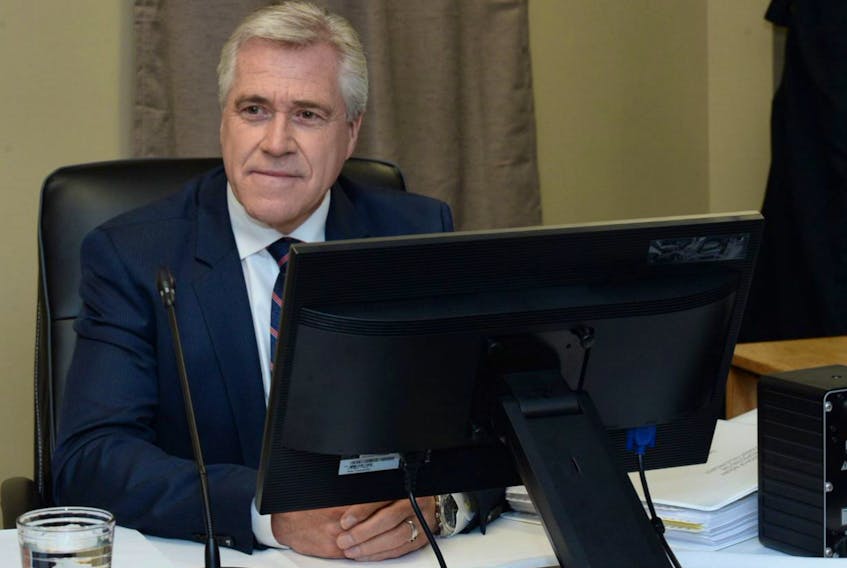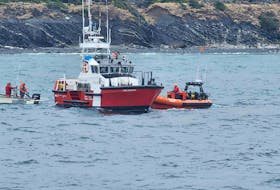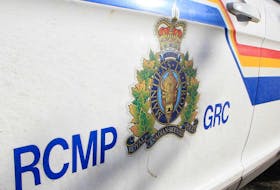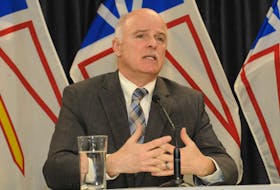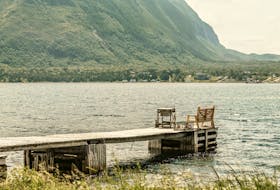ST. JOHN'S, N.L. — Premier Dwight Ball says everyone wanted to cap wetlands at the Muskrat Falls reservoir, but the government “unintentionally” missed the deadline, and could offer no further explanation.
Ball took the stand at the Muskrat Falls Inquiry on Thursday to answer how his government has handled the $12.7-billion project inherited when the Liberals took power in 2015.
On June 20, a panel comprised of public servants Martin Goebel, Susan Squires, and Jamie Chippett told the inquiry that time had expired for the government to do more work to mitigate the risks of methylmercury accumulation at Muskrat Falls before the reservoir was impounded with water.
On Thursday, Premier Ball — who is also minister of Labrador and Indigenous Affairs — was pressed on why the deadline was missed, by lawyer Caitlin Urquhart, representing the Labrador Land Protectors and the Grand River Keeper.
Nalcor had applied for a permit in July 2018 to carry out the approximately 13 hectares of wetland capping — essentially pouring sand and stone over a small area of wetland near the reservoir — but the permit was never approved by the Department of Municipal Affairs and Environment.

Ball was asked if he had an explanation for why the deadline was missed.
“No, I don’t. It was my intention to do wetland capping. We could not do the soil removal based on the fact that we had a number of the scientists at the time, four of the six, who were making the statement … that with soil removal you could potentially increase the level of methylmercury downstream,” said Ball.
“It was my intention to do wetland capping and to the point where there were a number of presentations that were given to me. This was always going to be done concurrent with the fish habitat conservation plan.”
Ball says the responsibility for the permit fell to the Department of Municipal Affairs and Environment, which was helmed at the time by Justice Minister Andrew Parsons, who took over the portfolio following the ousting of Eddie Joyce from the Liberal caucus in the spring of 2018. Parsons held the post until November 2018, when Graham Letto was appointed minister.
The matter was intended to be discussed at a December 2018 cabinet meeting, but the presentation was postponed. On Jan. 9, the cabinet was informed the wetland capping could not occur, as conditions in the area were not favourable.
Parsons was unavailable for comment on Thursday.
The recommendation to cap wetlands near the reservoir is the one recommendation from the Independent Experts Advisory Committee agreed to by all members of the panel and Indigenous governments in the area. Soil removal was agreed to by three of four of the parties.
During testimony, Ball repeatedly referred to ongoing monitoring for methylmercury in the reservoir and downstream of the Muskrat Falls project, noting that no large increases in methylmercury have been seen to date.
Twitter: @DavidMaherNL
RELATED

